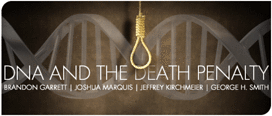There is nothing wrong with “best practices” which certainly includes taping statements. I have purchased thousands of dollars of audio and video recording equipment for often tiny police departments in my county who simply cannot afford it. As a prosecutor I want the statement fully and accurately preserved or the defense attorney will infer dark doings.
But to punish often small under-funded police departments for not doing it is wrong. There have been some innovative suggestions for providing positive incentives if a statement is recorded – like a jury instruction that the jury should give extra weight to a statement that is recorded. In Oregon there is a highly cautionary standard jury instruction about any witness statement.
There are significant issues on so-called sequential line-ups, and a Chicago study that showed they were not only less reliable but also had higher false positives than the more traditional 6-person “throw-down,” which can be easily preserved for the jury to determine if the photos were unduly suggestive in any way.
The other issue is expanding DNA databases, as New York – on a bipartisan basis – just did.
Since DNA can now be collected relatively nonintrusively, there is no reason not to collect it in the same way as fingerprints – which might even include licensed professionals like lawyers, cops, and teachers. There should also not be prohibitions on “warm” or familial DNA comparisons if the real goal is to get to the truth.
We cannot avoid the starkly different roles of prosecutor and defense counsel. The former is obligated to seek justice, not just convictions, turn over anything even vaguely helpful to the defendant while a defense attorney is ethically bound to do anything short of suborning perjury to get their client acquitted.

